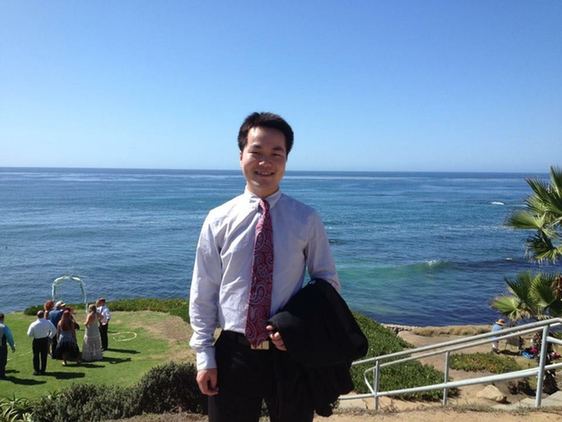He Jiang: Making more voices of China heard
Updated: 2016-05-26 04:33
By NIU YUE in New York(China Daily USA)
|
||||||||
 |
|
He Jiang.Provided to China Daily. |
Harvard commencement addresses, with their centuries-old history, are welcoming their first-ever Chinese orator on May 26.
He Jiang, a 2016 Harvard PhD graduate in biochemistry, will deliver a speech representing the university’s thirteen graduate and professional schools at the commencement on Thursday. Other guest speakers sharing the podium include Academy Award-winning director Steven Spielberg.
By tradition, Harvard selects three graduating representatives to speak at the commencement: One of the orations is delivered in Latin by a graduating senior from the college; the second, in English, is also by a graduating college senior; and the third by a student representative of the graduate and professional schools.
After three rounds of fierce competition, including drafts and auditions, three orators were chosen by a panel of judges to deliver an address — from memory — to an assemblage of approximately 32,000, including members of the governing board, honorary degree recipients, faculty, parents, alumni and graduates.
He Jiang, a young Chinese scholar who comes from a small village in central China's Hunan province, never thought he could achieve such a high honor for a student.
"My parents knew I was participating in the competition from the very beginning because I shared my thoughts, my stress and panic with them during the three rounds of elimination,” he said. “So when I got selected, they were really happy for me.”
"I also shared the news with one of my professors at USTC (University of Science and Technology of China), he was so surprised because he never thought a Chinese student could give a speech on such a lofty platform," He added.
Asked why he entered the competition, He simply said, "I wanted more voices from China to be heard."
He said from the point of view of a science student, his speech will focus on the uneven distribution of science and technology in the modern world.
"Combining our educational experience at Harvard, extending it to our mission and what responsibilities we should undertake after graduation to make the world a better place," He said.
He said his speech will be under seven minutes long and a professor has been helping him edit the draft and coaching him on public speaking skills.
But ability and hard work are what really have led He to the podium.
He grew up in a small village with poor educational opportunities. His father, who didn't finish high school and was locked out of many work opportunities in big cities because of it, impressed upon He and his younger brother from their boyhood the importance of studying hard, using his own experience as an example.
"My father was always strict with us so we’d avoid repeating his experience," He said.
Unlike his father, He's mother was more like a friend, who always encouraged him through the challenges of learning and life.
"One of the biggest problems for rural students is that the available educational resources are limited and students lack motivation," He said. "So thanks go to my dad for pushing me to study in that environment and to my mom, whose encouragement helped keep me focused on my studies."
He graduated from the University of Science and Technology of China — one of China's top universities — with a bachelor’s degree in 2009 and was accepted into Harvard’s PhD program on full scholarship the same year. All he knew about America was from books and films and he was in for some culture shock.
"Studying at Harvard, everybody around me was outstanding and my English was not as fluent as it is now. I lost confidence. I even began to wonder how I ever got accepted to Harvard," he said.
But with time he found his footing.
"The thing I like about American campus culture is that it’s diversified and encourages diversity,” he said. “As long as you are willing to discover, you can find a variety of resources you are interested in, to communicate with professionals and to make friends.”
He took a job as resident tutor for undergraduates and through that he learned about the commencement orations competition.
Apart from working and studying, He took part in activities on and off campus, including start-up and innovation sharing sessions, activities held by Chinese student associations and reading clubs.
"I’ve always had a great interest in literature," He said.
One of his favorite authors is Peter Hessler. "His books River Town, Oracle Bones and Country Driving are all my favorites," he said.
Encouraged by a history professor, He took up a pen and started writing about rural China in English.
"China has been under such a rapid development in recent years and China's villages have developed rapidly as well. Foreigners have more knowledge of China's mega cities, but with a limited number of channels, their impressions of China's rural life may still be lacking," said He, who has deep feelings for his hometown and still goes back to visit.
"I hope more of China's voices will be heard in the West, since what we have done so far is far from enough," He said
Taking advantage of weekends and spare time, He finished up his book and just signed with one of Europe's biggest publishers.
He is now doing postdoctoral work at MIT in bioengineering, studying methods of computer-assisted drug screening and early detection of cancer.
It hasn’t been an easy road, but that’s okay. "Perhaps it's because I suffered a lot growing up, so many frustrations to me are things I can definitely bear," He said.
- 2,000 refugees relocated on first day of major police operation
- No sign of EgyptAir plane technical problems before takeoff
- Chinese students at U. of Iowa accused of online cheating
- US Justice Dept. seeks death penalty for South Carolina shooter
- Global health entering new era: WHO chief
- Brazil's planning minister steps aside after recordings revelation

 Men vs. Machine: different robots in daily life
Men vs. Machine: different robots in daily life
 Following Alibaba, its online merchants now eye listings
Following Alibaba, its online merchants now eye listings
 Traditional dresses for Yugur women in Northwest China
Traditional dresses for Yugur women in Northwest China
 Students pose for graduation photo with performance
Students pose for graduation photo with performance
 Kids climb vine ladder in 'cliff village' in Sichuan
Kids climb vine ladder in 'cliff village' in Sichuan
 Stars of Lijiang River: Elderly brothers with white beards
Stars of Lijiang River: Elderly brothers with white beards
 Wealthy Chinese children paying money to learn British manners
Wealthy Chinese children paying money to learn British manners
 Military-style wedding: Fighter jets, grooms in dashing uniforms
Military-style wedding: Fighter jets, grooms in dashing uniforms
Most Viewed
Editor's Picks

|

|

|

|

|

|
Today's Top News
Liang avoids jail in shooting death
China's finance minister addresses ratings downgrade
Duke alumni visit Chinese Embassy
Marriott unlikely to top Anbang offer for Starwood: Observers
Chinese biopharma debuts on Nasdaq
What ends Jeb Bush's White House hopes
Investigation for Nicolas's campaign
Will US-ASEAN meeting be good for region?
US Weekly

|

|







